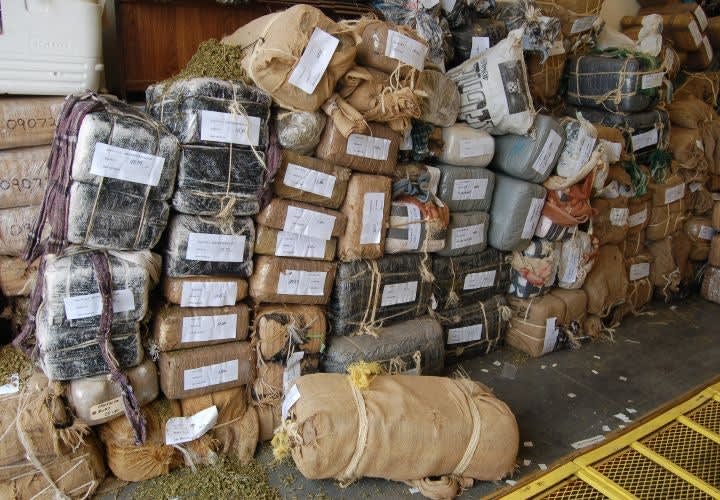Last March I wrote an editorial called "Finding a Cure for Cancer" in which I asked the readers of POLICE to submit their ideas for fighting back against the Mexican drug cartels. Your answers to that column ran in our May 2009 issue.
I wish I could write today and tell you how much better the situation is in Mexico. But it's not better; it's worse.
As detailed in Paul Clinton's feature story on drug-fueled home invasion robberies in cities like Atlanta, Phoenix, and Tucson ("Home Invasions: Side Effects of the Drug War"), the Mexican drug trafficking organizations (DTOs) are under a lot of pressure from the Mexican government. And it just makes them more ruthless and more willing to commit acts of spillover violence within the borders of the United States.
The cartels have been busy boys in the last month or so. They made a mockery of Tijuana's attempt to attract high-tech industry to a technology festival by hanging a few beheaded bodies near the venues. They are suspected of killing an American tourist jet skiing on a border lake in Texas and later beheading the Mexican police investigator assigned to the case. And they continue terrorizing both civilians and law enforcement nationwide.
American official response to these outrages remains impotent. Our government tells us it's really our fault because of the demand for drugs in the United States. Or the Obama administration through Secretary of State Hillary Clinton tells us that the real problem is the gun shops in Texas. It says if we didn't sell the cartels guns, they wouldn't be so violent. And finally, it's a Mexican matter; we need to let them handle it.
It's absolutely true that if there weren't a $39 billion market for drugs in the United States, the cartels would not be so violent and so powerful. It's true, but it's also a tautology. That's a fancy word for a statement so self-evident that the only correct response to it is: Well, duh. And here's another tautology: There also wouldn't be a $39 billion drug market in the United States if people stopped smuggling drugs into the country. Well duh.
And let's talk about the guns. Guns are always the bugbear of any left-wing American politician. And the statement that the cartels are getting their guns from Texas gun shops is absolute nonsense. They probably buy a few pistols and ARs across the border. But that's not where they get their real arms. They steal them from the Mexican Army. They pay Mexican Army officers and enlisted men to desert into their ranks and bring their weapons. And they get automatic and belt-fed weapons from the enemies of America, including North Korea, China, Russia, and Venezuela.
Finally, saying it's a Mexican matter and we can't get involved is just silly. The Mexican government obviously can't handle this, no matter how much money or training we give them. And this mess is killing Americans in America.
Here's how bad it is in Mexico: The new police chief of a small town near Ciudad Juarez is a 20-year-old criminal justice student with no full-time experience as a cop. She got the job because no one else wanted it. You see, police chiefs don't last very long in the cartel-run border town where, according to the Associated Press, "Drug gangs take over at night, riding through town in convoys of SUVs and pickups, assault rifles and even .50 caliber sniper rifles at the ready."
The cartels are an insurgent army. They have corrupted Mexico at all levels. Their corruption and violence has spread over the border to the United States. And we need to do something. We need to do something now before things get worse.
First, we need to secure our border, and that doesn't mean putting National Guard troops in Arizona but not giving them ammunition. We need to put armed troops on the border.
Second, we need to go after the U.S. properties of anyone tied to the cartels. We know that their families live in the U.S. border towns.
Third, we need to make drug laws tougher here in the United States, not weaker. If we want to dry up the market, we have to make the penalties for drug possession more than a hand slap.
The situation on the Mexican border is a cancer. It needs to be excised and treated as quickly as possible. If this situation is allowed to fester much longer, we may have to go down a long and bloody road that no one in America or Mexico wants to travel.
Related:
Cancer Treatments: Battling Mexican Cartels
Legalizing America's Addictions Won't Cure Crime













